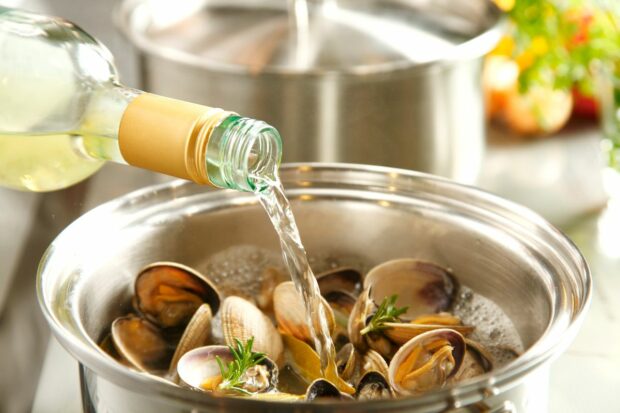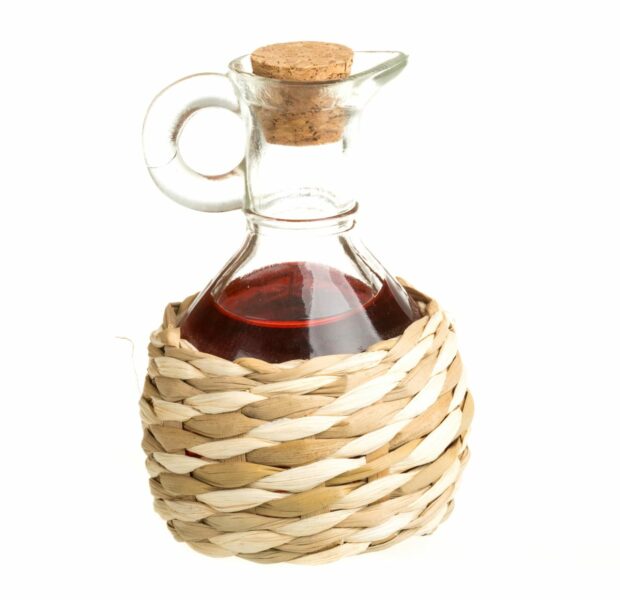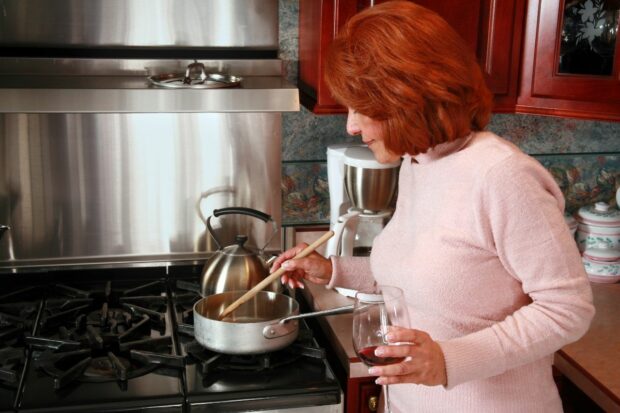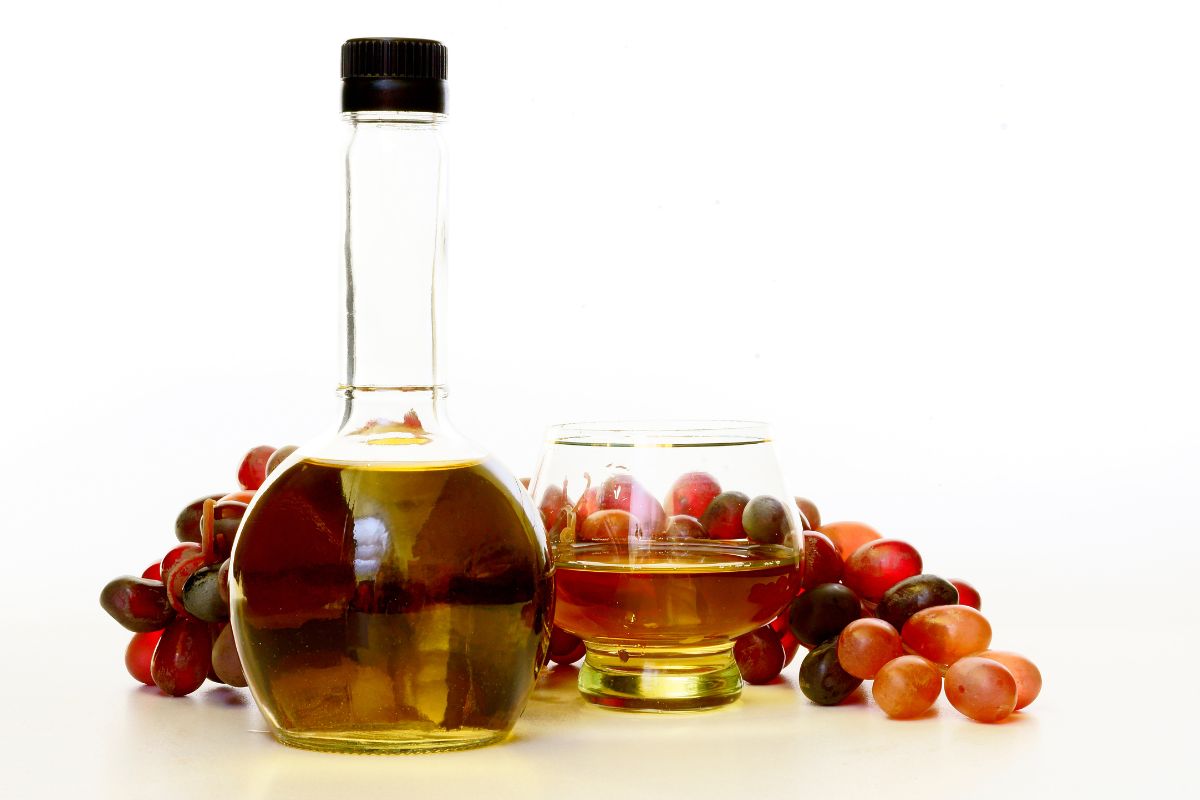Cooking wine and wine vinegar both begin as fermented grape juice, but that’s pretty much where the similarities end.
In short, cooking wine is wine. Wine vinegar is vinegar. In most recipes, you would not want to substitute one for the other.

What is Cooking Wine?
Cooking wine is cheap, industrial wine that has lots of salt added, and sometimes herbs as well. It is undrinkable as wine, which is why grocery stores are allowed to put it on the shelves with their cooking products and sell it to minors.
It tastes so bad that serious chefs will tell you not even to cook with it. “Don’t cook with any wine you wouldn’t drink,” they say.
That’s not to say you can only cook with premium wine. A basic, cheap wine is fine, because most of the alcohol burns off during cooking anyway and leaves only the acidity. The wine you cook with just needs to be drinkable.
What is Wine Vinegar?
Wine vinegar is wine that has undergone a secondary fermentation process to produce a highly acidic vinegar with little alcohol.

Do you know where the word “vinegar” comes from?
It comes from the French vin aigre. In French, vin means wine and aigre means sour. Vinegar is sour wine.
So how does it get that way?
Well, wine is basically the midpoint between juice and vinegar. It undergoes fermentation to become wine.
To take it all the way to the vinegar state, it undergoes a secondary fermentation process using something called “mother of vinegar”—a culture of acetobacter bacteria that oxidize the ethyl alcohol in the wine and turn it first into acetone, then acetic acid.
Acetic acid is basically vinegar.
So wine vinegar is wine that has been allowed to go sour, or even encouraged to do so through the introduction of bacteria. It has very little alcohol left in it by that time.
Differences Between Cooking Wine and Wine Vinegar
Taste
Cooking wine tastes like very salty, cheap wine. It’s not pleasant. You wouldn’t drink it, but it’s less offensive once it’s mixed into a stew or something. The added salt usually means you can reduce the salt in your recipe.

Wine vinegar is much sharper, stronger and more sour. It has a slight underlying wine taste, but it is definitely vinegar.
Alcohol Content
Cooking wine typically has an alcohol percentage of about 15 per cent, which is a little higher than the average bottle of wine.
Wine vinegar, because of the oxidation process that converts ethyl alcohol to acetic acid, typically comes in at less than two per cent alcohol.
Both wine vinegar and cooking wine are great ingredients for tons of dishes, and while they both start out as grapes and then turn into wine, they diverge quite quickly after that.
You don’t want to drink cooking wine, but you can cook with it—although you’re better off just using an affordable wine for this.
Wine vinegar, because it is primarily acetic acid, will bring much more acidity to your dish.
